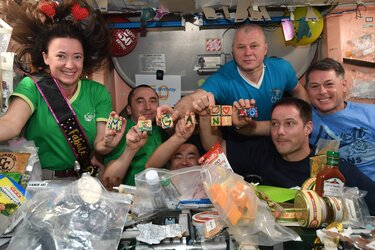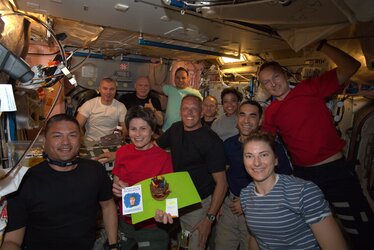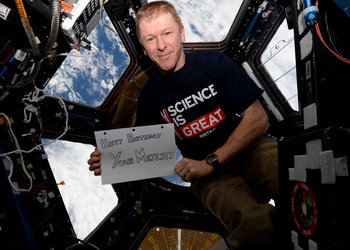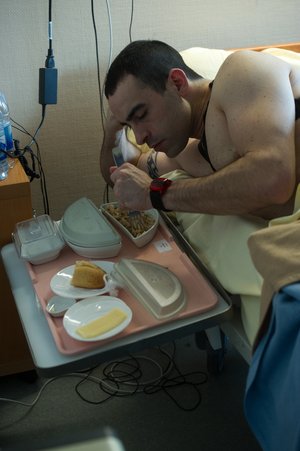
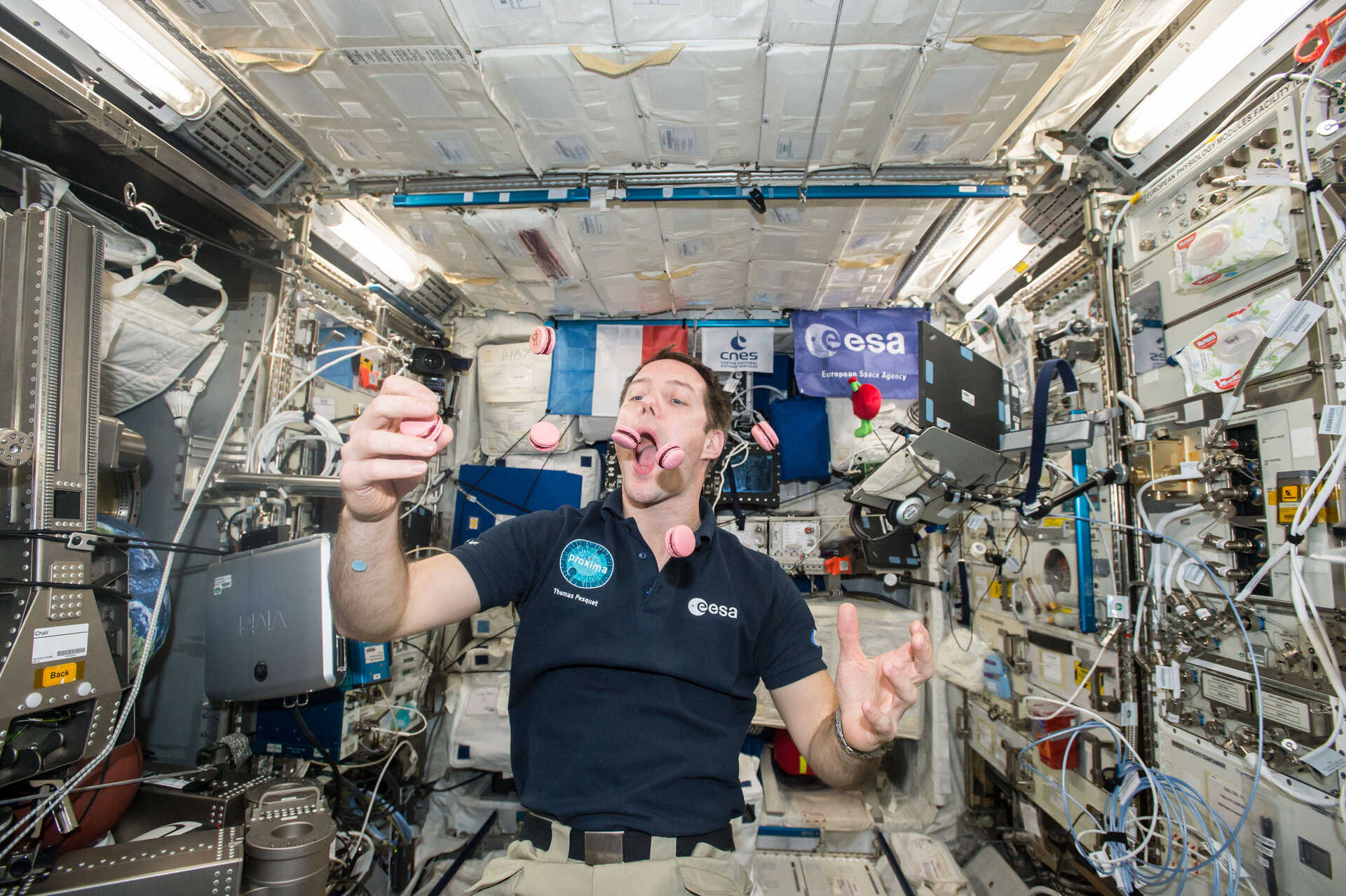
Space macarons
ESA astronaut Thomas Pesquet playing with an arrival of French delicacy macaroons on the International Space Station during his six-month Proxima mission in 2017.
Thomas commented on this picture on 27 February: “Thanks for the birthday wishes everybody, Dragon bought up a birthday treat: macarons!”
An optimal diet, paired with constant exercise, is essential to counteract the effects of spaceflight on the human body. Bone loss, muscle atrophy and depleted nutrient stores such as protein, fat and vitamin D are among the negatives of space travel.
Research shows that energy intake in orbit is usually lower than on Earth – some even call it ‘spaceflight anorexia’. From tubes to cans and rehydratable packages, space food has evolved to meet nutritional requirements and boost crew morale.
Since gaining weight is very unusual for astronauts, flight surgeons have always consulted astronauts when building their menus. Doctors want to ensure the crew are fuelling themselves with a balanced diet, suitable for space demands and the return to Earth. Exceptions for birthdays are of course allowed.
Connect with Thomas at http://thomaspesquet.esa.int


